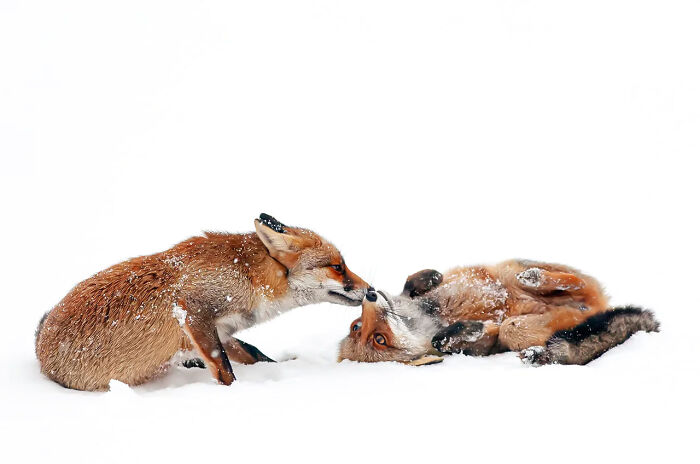When I first started photographing foxes, I thought I knew them: cute, clever, a little sneaky. But after fifteen years of spending thousands of hours in the field, I’ve learned one thing: When it comes to foxes, the more you know, the less you know.
They are loyal lovers, devoted parents, expert swimmers, and surprisingly expressive talkers. They can “see” magnetic fields, cache food for the future, and even… laugh.
Here are some of the things you probably didn’t know about foxes and a few that still amaze me.
More info: roeselienraimond.com | Instagram | Facebook
1. They can swim (but prefer not to)
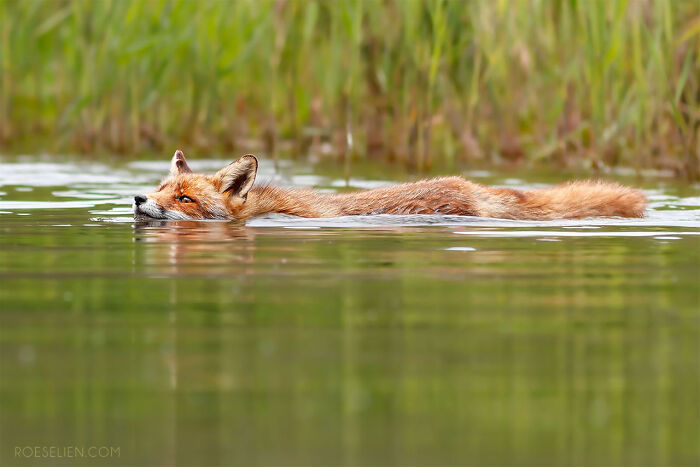
They are not cats, but not exactly water babies either. Foxes can swim perfectly well — they just do not see the point unless they must.
2. They climb trees
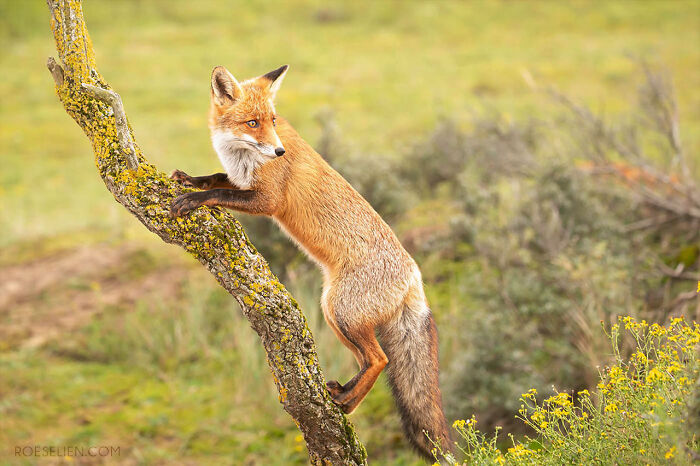
Yes, really. While scientists still debate whether their claws are semi-retractable, I have seen foxes climb trees like feline acrobats. They may not purr, but they sure can climb.
3. They fall in love
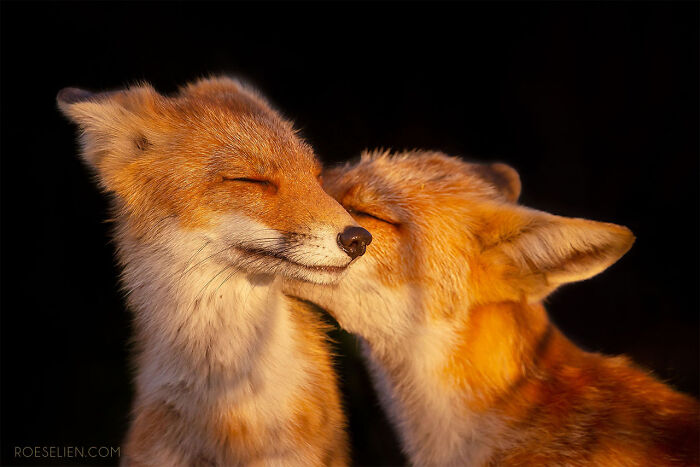
Foxes often form lifelong partnerships, sharing territory and raising cubs together. Some males are model fathers. Others… well, they explore their options. In love, foxes are as human as it gets.
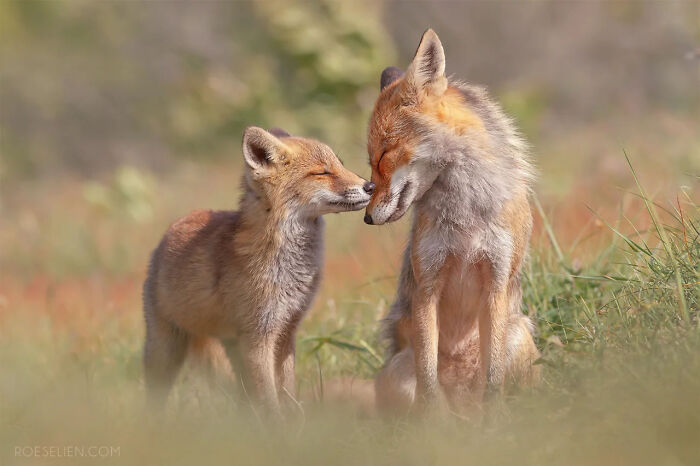
4. They come in colors

Despite their name, red foxes (Vulpes vulpes) come in many colors: Red, orange, golden, grey, black, silver, and even pure white. Melanism and albinism create striking variants, and the rare cross fox wears a beautiful coat of both red and black.
5. They cache leftovers like pros

Found extra food? Bury it. Foxes dig a small hole, drop it in, cover it with their nose, and sometimes even pee on top as a GPS marker.
6. They live in a world of scents

One spring day, I watched a fox cub race across the water, past a tree, up a hill. Fifteen minutes later, her mother appeared and followed the exact same invisible trail, purely by scent. Foxes live in a world we cannot even imagine; a world made of smell.
7. They’re strategic hunters, planning their next meal
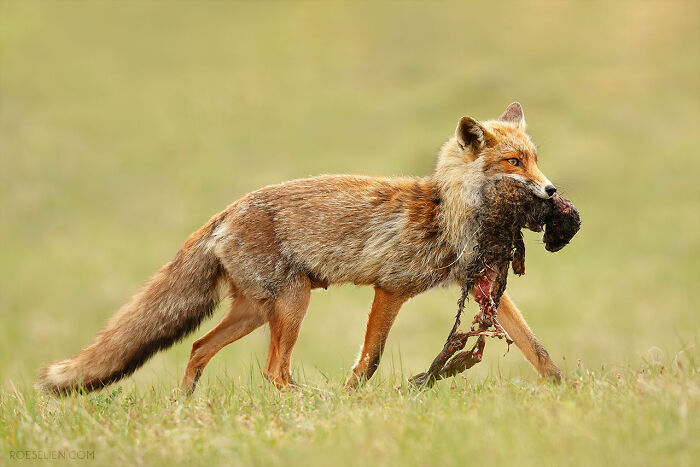
When foxes hunt more than they can eat, it is not cruelty, it’s instinct. They store food for later, just like we fill our freezers “in case.”
8. They eat all they can eat

Rabbits, berries, lizards, sandwiches, eggs, birds, and dragonflies. I once heard a fox crunch a dragonfly mid-air.

9. They are family-oriented
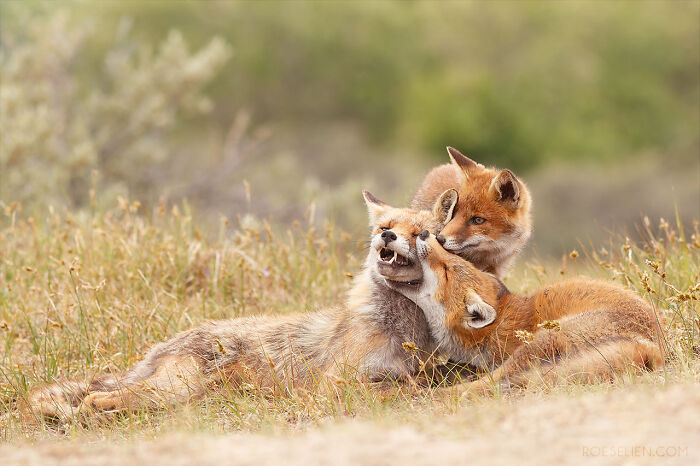
Foxes may hunt alone, but they raise their young together. Especially in the first weeks, mothers nurse, fathers hunt, and older siblings often stay to babysit — a behavior known as alloparenting.
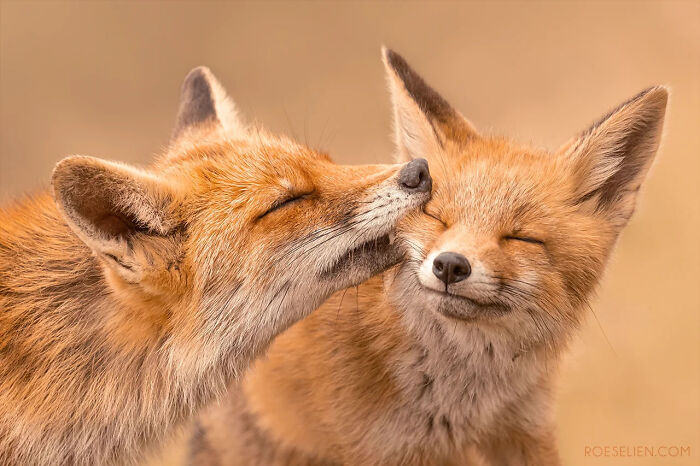
10. Sometimes they share dens and babies

I have seen fox mothers and daughters combine their litters and nurse each other’s cubs. No one minds whose baby is whose. After all, love is love.
11. They are not neat freaks
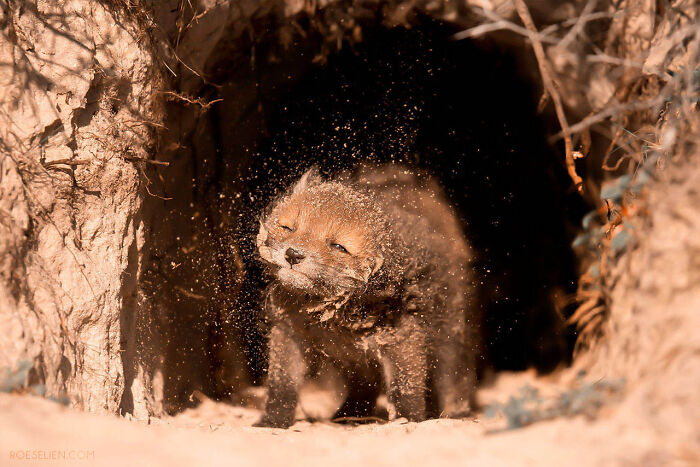
There is a reason we Dutch say sloddervos (“sloppy fox”). Their dens get messy fast, so they just move house. Problem solved.
12. They exist in forty-five flavors
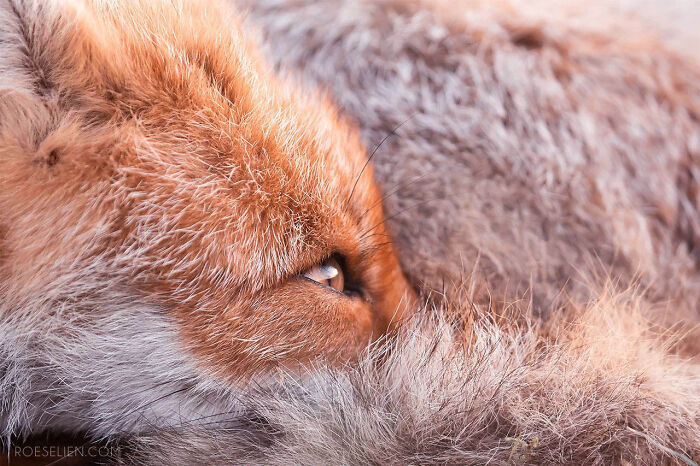
From the Arctic to the desert, each red fox subspecies has its own size, color, and character. The rare Sierra Nevada red fox counts fewer than fifty left on Earth.
13. They pounce like pros

Watch a fox leap high, pause mid-air, and land nose-first into snow. That is the mouse pounce, pure art in motion.
14. They use Earth’s magnetic field to hunt
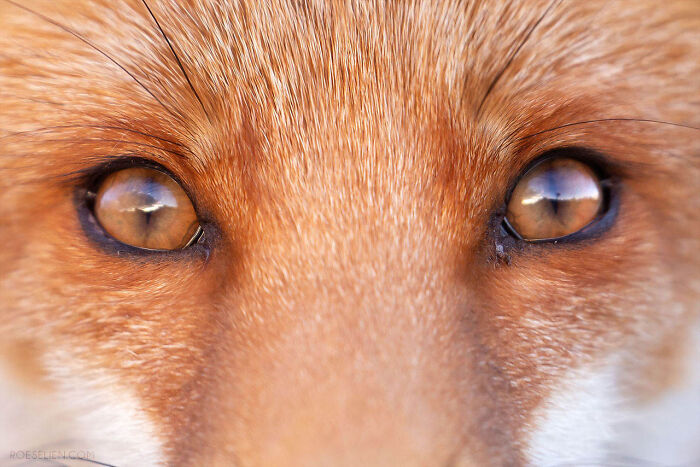
Science confirms it: foxes “see” magnetic fields through proteins in their eyes, helping them pinpoint prey beneath snow.
(Source: National Geographic, Wildlife Online)
15. Young males must leave home
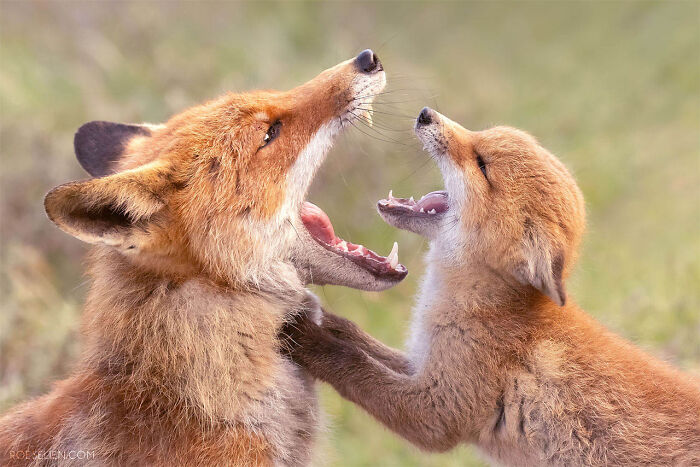
When sons grow up, they are kindly told to move out to ensure no inbreeding and plenty of adventure.
16. They bark

Their bark sounds like a cross between a scream and a hiccup. They use it to flirt, defend, or call their family. I once heard a lonely cub bark into the night, calling for its mother — heartbreak in sound form.
17. They do not eat your pets

Foxes are far more likely to avoid cats than attack them. In fact, I have seen cats boss them around. The “fox eats pets” myth says more about us than about them.
18. They do not live long — but they live fully
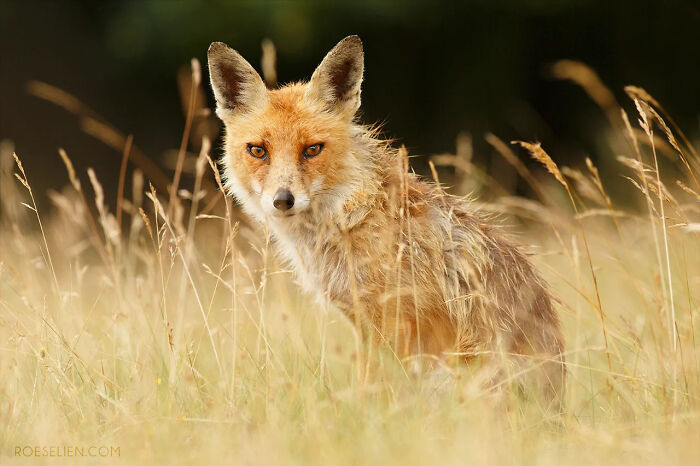
In the wild, most reach 3–5 years. But I knew one lady fox who made it to nine, raising probably forty cubs. A life well lived.
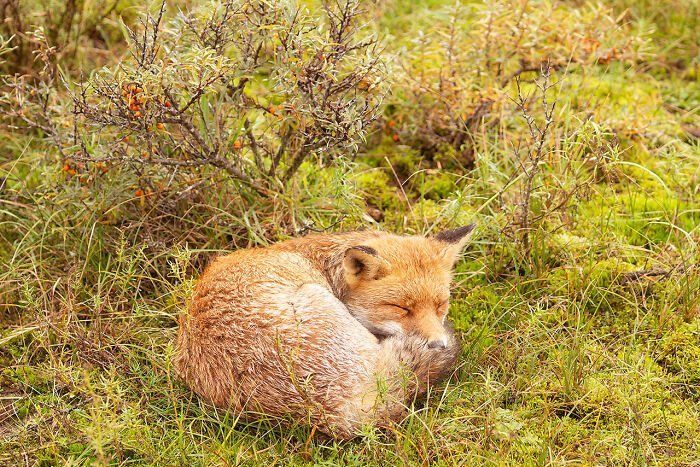
19. Teen moms exist
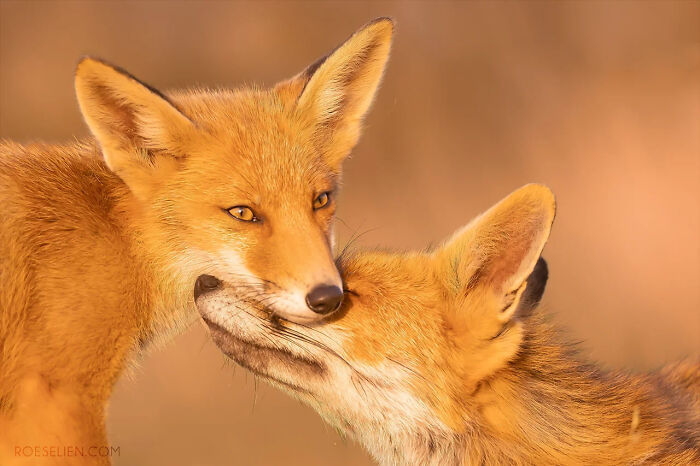
Some daughters skip the helping phase and raise their own cubs — often side by side with their mothers. Fox families are flexible.
20. They are territorial but tolerant
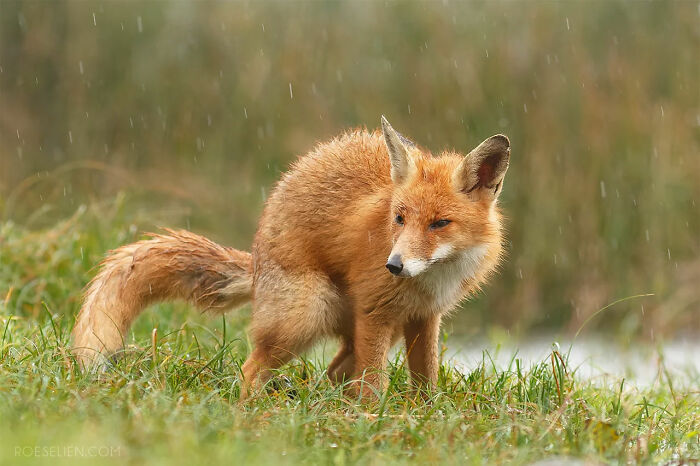
Their territories can span from a few city blocks to forty square kilometers.
Boundaries are marked with scent — invisible fences with a strong perfume.
(Source: Mammal Society)
21. They are not dangerous
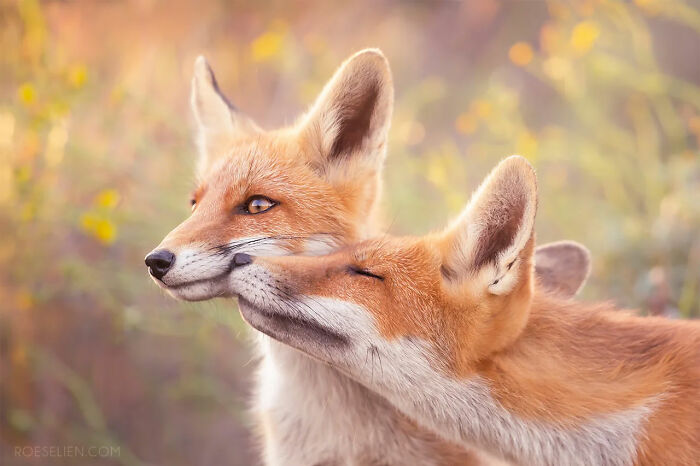
In over a decade of close encounters, I have never seen an unprovoked attack. Healthy wild foxes are shy, gentle, and full of curiosity.
22. They helped eradicate rabies
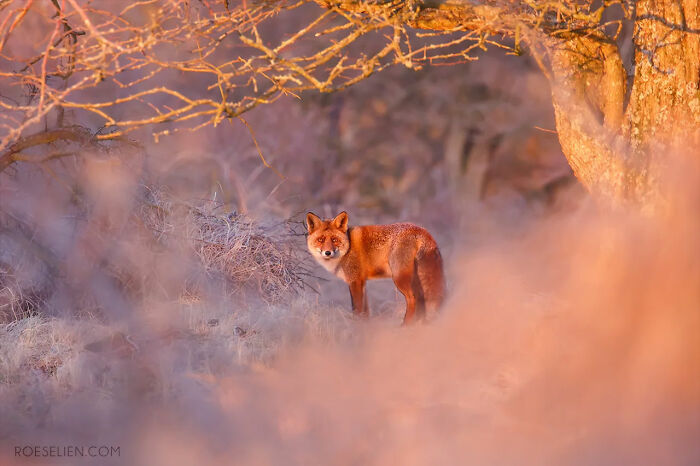
Thanks to widespread vaccination campaigns (vaccine baits dropped from planes!), rabies in foxes is nearly gone from Europe. Coexistence works.
23. They can laugh

Proven by UCLA. Foxes “laugh” during play, and some even sound like human babies when they do. (But honestly, I’ve known that for years!)


24. Hunting them does not work
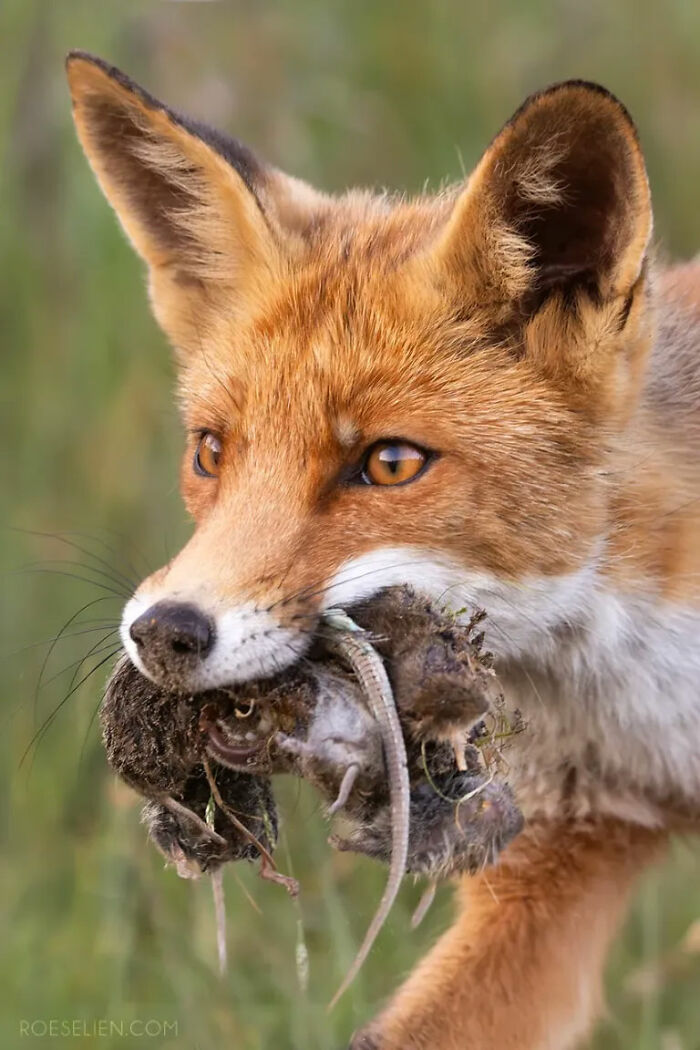
Culling foxes often causes populations to rebound. Nature regulates itself — foxes control rodents and maintain balance. They are pest controllers, not pests.
25. They love snow

Fox fur is perfectly winter-proof. I have seen foxes curl up in snowdrifts like orange commas with their tails wrapped tight. They don’t endure snow; they celebrate it.
26. They “dance” instead of fighting

When disputes arise, foxes rise on their hind legs, rest their paws on each other’s shoulders, and open their mouths in a dance of dominance. The fox with the biggest mouth usually wins.
27. They are drama queens

From soft purrs to operatic screams, foxes express everything: fear, joy, outrage, longing. When two foxes reunite, they can scream with joy like long-lost lovers.
28. They fight Lyme disease
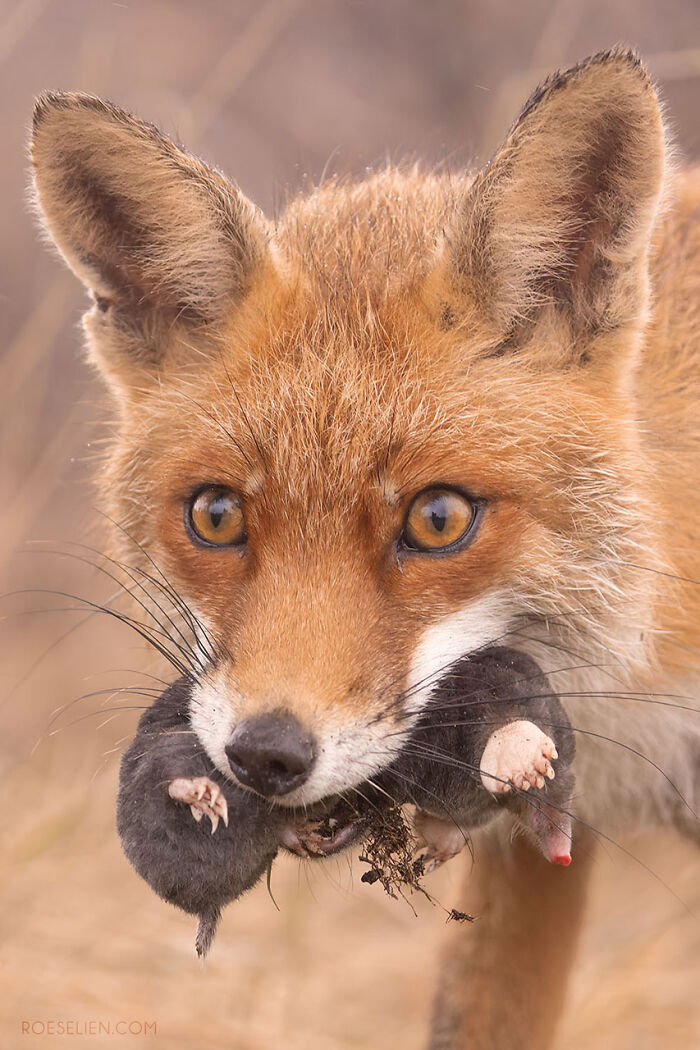
Healthy fox populations mean fewer rodents and, therefore, fewer ticks. In other words, foxes might be our secret weapon against Lyme disease.
(Sources: Wageningen University, University of California)
29. They hear better than they smell
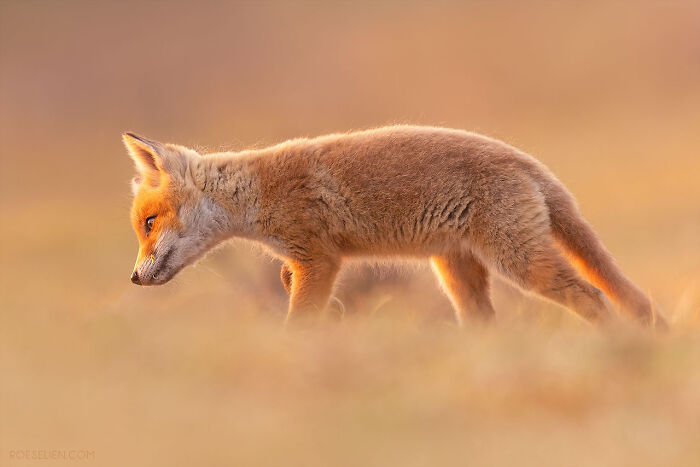
A fox can hear a ticking watch from thirty-six meters away. They tilt their heads, listen, and leap, mostly landing right on target.
30. They are not strictly nocturnal

They have learned to avoid us. Where foxes feel safe, they roam by day and night. Fear, not biology, made them strictly nocturnal.
31. They are the ultimate survivors
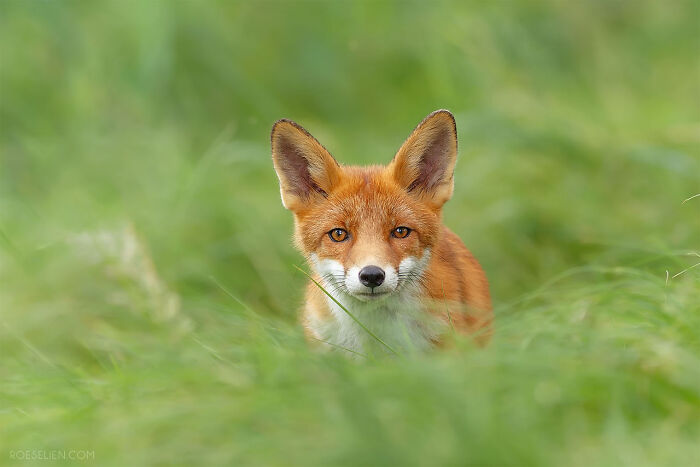
Foxes live everywhere, from deserts to tundras, forests to cities. Smart, adaptable, and endlessly curious, every fox I have met has taught me something new. They can be shy or bold, serene or mischievous, but always, always full of life.
Never a dull moment with a fox!
